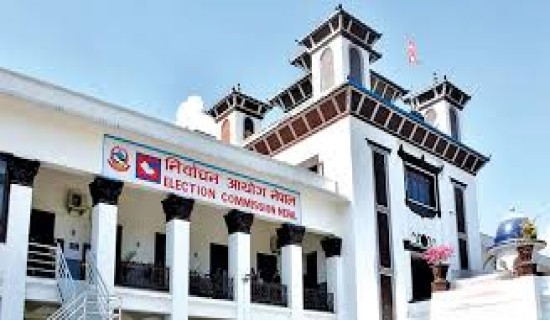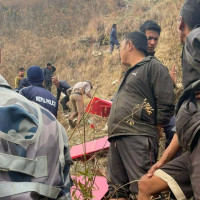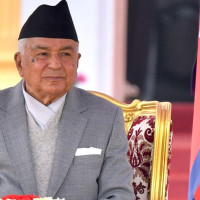- Tuesday, 3 March 2026
Democracy Day
Transformative Shift In Democratic Movement
In an article titled ‘Democracy at a Turning Point: A Treatise on Democratic Limits of Democracy’, Luka Nikolic and Igor Milic have argued that ‘democracy can only exist as a promise to come. Its fatal attraction lies in this deceptive nature’. From the surface, their remark sounds cynical, but if we go deeper into the paradoxes of democracy they have tried to address, what the authors have said rings true.
Democracy is considered the best form of governance that human civilization has experienced in its history. It is the best because, in a democracy, those who are privileged to rule must be elected by the people. Democracy is based on the widest possible consensus as expressed by the majority; it allows space for the people to deliberate on social issues and ensures that people can enjoy the broad spectrum of rights attached to individual liberty.
As a form of governance, democracy has many characteristic features, the most outstanding of which is popular sovereignty. Similarly, equality before the law, protection of the rights and dignity of citizens, periodic and regular elections, and, most importantly, a system of accountability place it on a higher pedestal among other contemporary forms of governance.
Over the past few decades, however, democracy has been reduced to a ritual rather than a robust system legitimised by popular endorsement, despite the above-stated progressive provisions. Under the garb of democracy, politics has been fragmented into many extreme polarities, ranging from far left, far right, conservative, and neo-conservative to liberal and neo-liberal denominations. These forces vie for power and do not hesitate to go to any length to compromise principles and values that nurture and nourish democracy as a system of governance. At present, elections are projected as the quintessential element of democracy, and winning them through fair or foul means is the most credible eligibility for running the affairs of the state.
Democracy is a participatory system, but it is fast turning into a playing field for an exclusive class of political nouveau riches to score an advantage by juggling through electoral tricks. However, as former Brazilian President Fernando Cardoso has said, “Democracy is not just a question of having a vote. It consists of strengthening each citizen’s possibility and capacity to participate in the deliberations involved in the life of society.”.
Democracy is a system of governance, not in the sense of controlling, limiting, and restricting new ideas, the mobility of the people, the advancement and diffusion of knowledge, or the people’s quest for a prosperous life. It is a philosophy of self-governance to optimise the creative potentials of society by allowing its individual members a free framework for unleashing their potentials so that the whole society enjoys liberty, equality, and access to opportunities.
Today, the above values ascribed to democracy are no longer functional. There is a consensus among intellectuals and political scientists that the western model of democracy is in retreat. Every country in the democratic world is in crisis. Elected leaders are showing a penchant for using the electoral majority as a licence for achieving power and clinging to it perpetually. The successive electoral victories achieved through rigging or manipulation by military rulers of some South Asian, East Asian, Latin American, and African countries have been used to perpetuate military dictatorships and ride roughshod over the people, stifling society’s aspirations for political freedom and the rule of law.
Today, even those countries that boast themselves of being the oldest and largest democracies are found mired in intractable social contradictions, economic disparities, polarisation of politics, and fragmentation of society. We find leaders of these countries forming populist agendas around inflammable religious, ethnic, external, or domestic threats, perceived or real. Political parties are shedding ethical standards and putting themselves in survival mode, indulging in misrepresentation of facts, restrictions on free ideas, and manipulation of media outlets to serve their narrow interests. Today, the mass media is so polarised that it is difficult to form an opinion and make an informed decision on the basis of an independent source of information.
James Madison once said, ‘The advancement and diffusion of knowledge is the true guardian of democracy’. But it works just the opposite in the present-day global context. Different media portals depict events of war, social unrest, international humanitarian crime, and genocide differently. What is racialism for Africans is not so for Americans; what is genocide in Ukraine is not so in Israel; what is ethnic cleansing in the case of Rohingya Muslims is not so in the case of Palestinians or Syrians. Today, fabrication, lies, and misleading information are debasing the ethical standard of the media and making people delusional.
As ideological polarisation and fragmentation proliferate, different versions of democracy have emerged in the world. The western democracy that came into existence with the French Revolution of 1789 appears to have completed its life cycle as a tool for achieving liberty, equality, and fraternity. Western democracy contributed to expanding the intellectual universe of human society for over 235 years but could not achieve much in the field of ensuring equality, inclusion, and justice. This is the reason why it appears to be facing the risk of being pushed into irrelevance.
In conclusion, the parliamentary democracy institutionalised by the 1789 revolution has reached the point of stagnation. Despite lofty rhetoric about liberty, equality, and fraternity, it could not usher in the type of social transformation it had promised in its heydays through revolutions of different hues and nametags.
Today, global society appears restless in the quest for an alternative version of democracy that is better attuned to human aspirations for change and progress.
A great transformative shift appears to have started deep down in the fragmented and polarised core of societies. It is difficult to predict when the violent shakeup will take place, but the world has arrived at the turning point of a tectonic transformation of human society.
(Bharadwaj is a former ambassador and former chairperson of Gorkhapatra Corporation. bharadwajnarad@gmail.com)
















